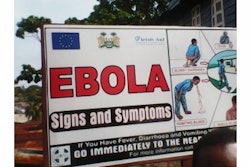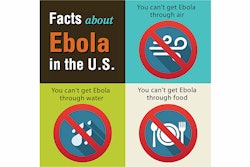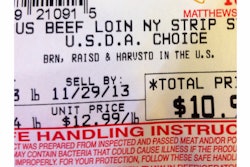
The Ebola panic presently sweeping the U.S. raises a host of potential issues for employers, notes Scott Faust, an attorney at Proskauer Rose LLP, an international law firm with offices in Boca Raton, Fla. Faust wrote the following article on this topic for Lexology, a web-based service that provides company law departments and law firms with practical information.
The Ebola panic presently sweeping the U.S. raises a host of potential issues for employers. We recently provided guidance to help employers ensure employee safety while also complying with legal obligations under the Americans with Disabilities Act and similar laws. In addition, the Occupational Health & Safety Administration (OSHA) recently released a comprehensive summary of requirements, recommendations and guidelines for employers and workers. The escalating concern over Ebola also raises potential labor relations issues. Many of the workplaces with the potential for employees to come into contact with infected persons or material – health care providers, cleaning services, waste disposal firms, ambulance and other transportation services, to name a few – are unionized, and unions have begun to seek greater protections for their members. Non-union employers may be affected as well, as at least one group of non-union employees has engaged in a strike to protest inadequate safety measures.
An important step all employers can take, whether unionized or not, is to share information disseminated by the Centers for Disease Control (CDC) and other public health agencies to educate their employees. Indeed, a recent Washington Post article highlighted the information gap that is fueling public fears. Sharing accurate, up to date information should help address employee concerns and avoid potential workplace disruptions based on unfounded fears.
Beyond the dissemination of information, in workplaces where employees may have some potential to come into contact with persons or material infected with the Ebola virus, employers must comply with applicable workplace health and safety laws and regulations, including making sure that effective protocols are in place, that protective equipment and clothing are available, and that employees receive appropriate training. Not surprisingly, healthcare workers – nurses in particular – have been at the forefront in demanding increased protection and training.
National Nurses United (NNU) has been especially outspoken. In addition to its criticism of the Texas Health Presbyterian Hospital, where two nurses caring for an Ebola patient became infected themselves, it has launched a multi-pronged campaign to achieve increased training and protection for nurses who may be called upon to treat Ebola patients. As part of their campaign, they have released an Ebola Toolkit that includes a guide to state and federal whistleblower laws and a comprehensive set of collective bargaining demands. Their demands include detailed proposals for Ebola-specific protocols, training and protective equipment, creation of a joint labor-management infectious disease task force, medical services for exposed or potentially exposed employees, and full paid time off for nurses exposed to an infectious disease. Healthcare employers should expect to be presented with comparable demands from the unions representing their employees, if they have not done so already.
Other unions are engaging in similar activities. As the largest union in the U.S. representing healthcare workers, cleaners, and other service employees who could potentially come into contact with a person or material infected by Ebola, the SEIU has been particularly active. Its public efforts to date have been focused largely on educating union members and training them to use protective equipment.
In addition to union advocacy and education, there has been at least one work stoppage arising from employees’ Ebola concerns. At LaGuardia airport, a group of more than 200 non-union aircraft cabin cleaners recently engaged in a one-day strike to protest what they claimed were inadequate protections from exposure to Ebola. In that case, the SEIU is attempting to organize the striking cleaners, but regardless of whether non-union employees are seeking union representation, they have the right under the National Labor Relations Act to engage in concerted activity for their mutual aid and protection, such as a strike to protest working conditions related to Ebola risks.
Education and communication are critical to addressing employees’ Ebola-related concerns and avoiding workplace disruptions based on unfounded fears. In unionized workplaces, union representatives should be included in the education and communication process. Of course, all employers must comply with applicable workplace safety and health laws and regulations. Depending upon the circumstances, unionized employers may have bargaining obligations with respect to additional measures they seek to implement in response to Ebola concerns. They may also be faced with bargaining demands by employees seeking greater protection. Finally, it is important for non-union employers to understand that their employees also have the right to act in concert for their mutual aid or protection.


















